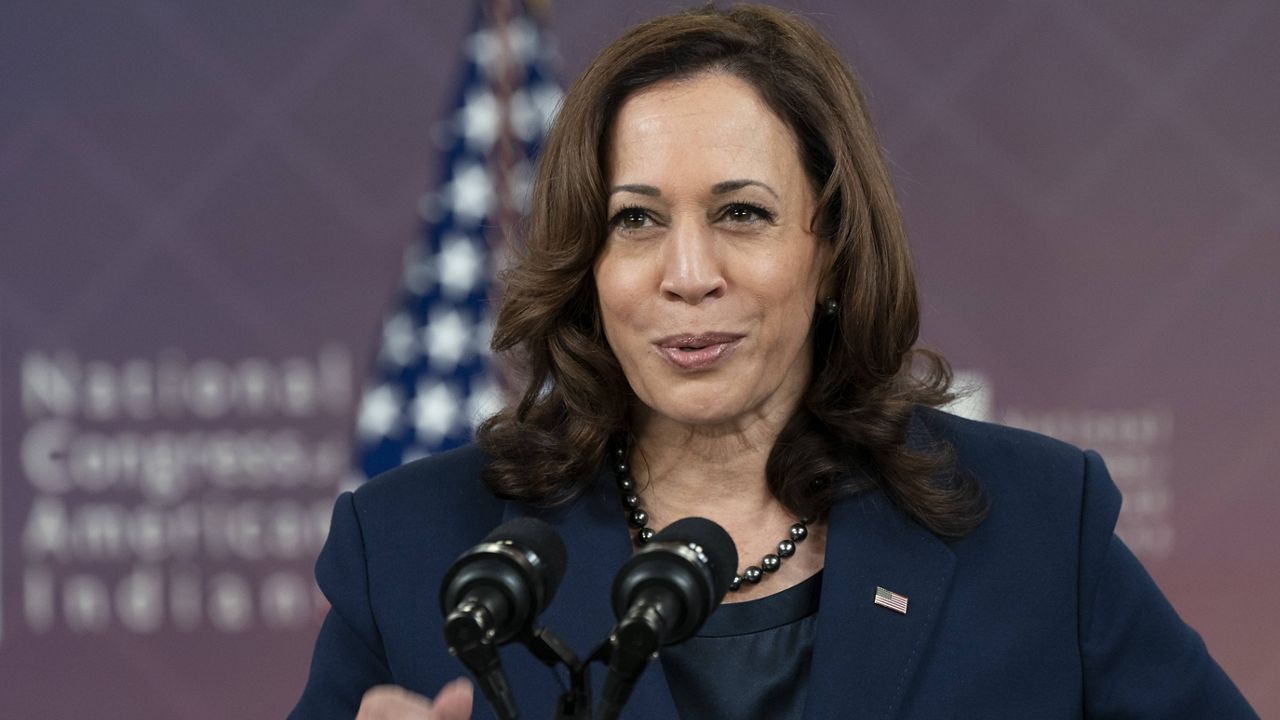Vice President Kamala Harris announced Monday that the Biden-Harris administration is dedicating $1.5 billion toward diversifying the nation’s health care workforce and addressing health care disparities.
What You Need To Know
- Vice President Kamala Harris announced Monday that the Biden-Harris administration is dedicating $1.5 billion toward diversifying the nation’s health care workforce and addressing health care disparities
- The administration is investing in the National Health Services Corps, Nurse Corps and Substance Use Disorder Treatment and Recovery programs with the goal of addressing worker shortages and making health care more equitable in underserved communities
- The funding, part of the American Rescue Plan passed by Congress in March, will provide scholarships and repay loans for health care students and professionals who commit to serving in-need communities; The money will support more than 22,700 providers, the White House said
- Only about 7% of the nation’s physicians are Black or Latino despite that those groups account for 31% of the U.S. population
The administration is investing in the National Health Services Corps, Nurse Corps and Substance Use Disorder Treatment and Recovery programs with the goal of addressing worker shortages and making health care more equitable in underserved communities.
The funding, part of the American Rescue Plan passed by Congress in March, will provide scholarships and repay loans for health care students and professionals — doctors, dentists, nurses and behavioral health providers — who commit to serving in-need communities.
"Our nation must invest in a health care workforce that looks like America and provide access to equitable health care for all Americans," said Vice President Harris Monday afternoon at the White House. "Our administration's goal here is to address the urgent shortage of doctors, nurses and behavioral health providers in both urban and rural areas."
Harris spoke about how the pandemic highlighted racial health disparities throughout the U.S. and she pointed to the administration's vaccination campaign and the work done to close the gap in shots given to Americans of color.
"Even in difficult times, especially in difficult times, we remain undaunted. We remain undeterred. We remain determined to build a better future," she said. "We have an opportunity now to advance health equity. It is up to all of us to seize on that opportunity."
Surgeon General Dr. Vivek Murthy and Health Resources & Services Administration head Dr. Luis Padilla helped officially announce the new funding Monday aftenoon.
The money will support more than 22,700 providers, the White House said.
More than 23.6 million patients receive care from the National Health Service Corps and Nurse Corps, according to the White House. The programs have taken on added importance during the pandemic by treating COVID-19 patients and testing and vaccinating people.
Dr. Murthy, an Indian-American, spoke about his own parents on Monday and their pursuit for equity, calling it an honor to serve alongside the vice president, the first Black and Indian-American person to occupy the role.
He spoke about the new funding initiative as a way to honor health care workers, saying that any recovery from the pandemic would be "owed to the health care and public health workers across the country who have showed up with competency and compassion day after day after the last 22 months, where they experienced burnout, loss, trauma and attacks."
"Vice President Harris has been a tireless champion for equity, because she knows, as my parents knew, that this cause is about more than numbers on a chart," he added.
Only about 7% of the nation’s physicians are Black or Hispanic/Latino despite that those groups account for 31% of the U.S. population. However, more than a quarter of physicians serving the National Health Services Corps are Black or Hispanic/Latino.
The funding also aims to address a projected shortage of nearly 60,000 primary care doctors, dentists and psychiatrists over the next decade as well as ensuring a sufficient number of nurses continues to enter the workforce, the White House said.
“A substantial barrier in meeting these health care needs is the student debt associated with graduate health education, which can average more than $200,000 per student and prevent students from underserved communities from even considering a career in health care professions,” the White House news release said.
The Biden-Harris administration also announced Monday it will begin awarding an additional $330 million in funding for Teaching Health Center Graduate Medical Education Program, also to help increase the number of primary care doctors and dentists serving in-need areas.
The announcements are a response to recommendations made by the presidential COVID-19 Health Equity Task Force, a group that President Biden called for in an executive order on his first day as president and which came together in February.
The task force was an idea then-Senator Harris pushed for in Congress last year.



